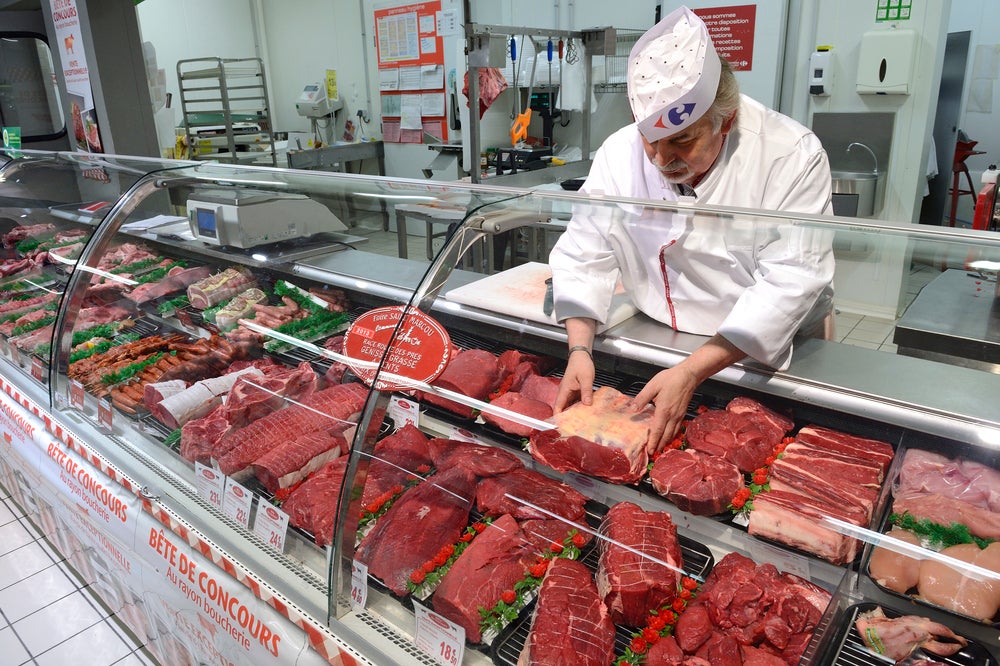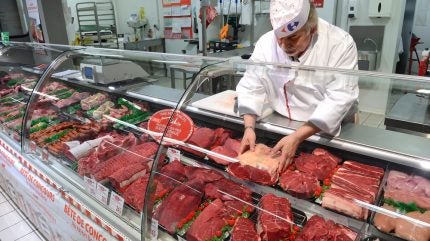

The power of the large supermarket chains in their relationship with food manufacturers and suppliers is not in doubt.
We saw it at the height of the inflation crisis when some European supermarket groups refused to stock the products of food businesses which they thought had gone too far in trying to recover margins through pricing strategies.
And it was certainly hinted at recently when French grocery major Carrefour told its suppliers that their products would no longer be stocked as part of its online offering unless they featured the Nutri-Score nutrition labels on their packs.
But there was a sign this week that the power balance isn’t always in one direction, especially when the country where those manufacturers and suppliers are based takes their side in the spat.
Carrefour was at the heart of things again.
Alexandre Bompard, CEO of France’s largest supermarket group, made comments in relation to a proposed EU-Mercosur free trade agreement that went down badly in Brazil, one of the countries that make up the Mercosur bloc.
Access the most comprehensive Company Profiles
on the market, powered by GlobalData. Save hours of research. Gain competitive edge.

Company Profile – free
sample
Your download email will arrive shortly
We are confident about the
unique
quality of our Company Profiles. However, we want you to make the most
beneficial
decision for your business, so we offer a free sample that you can download by
submitting the below form
By GlobalData
Bompard came out in support of protesting French farmers and the wider local agriculture sector, issuing a letter on LinkedIn pledging not to source meat from the trading group.
As is common with opposition to trade deals, cheap imports and inferior standards were to the fore of complaints.
Brazil is of course home to meat giants such as JBS – the world’s largest meat business – and Marfrig Global Foods and Carrefour’s opposition to an EU-Mercosur trade deal went down like the proverbial lead balloon.
Industry groups in Brazil said they would stop supplying meat to local Carrefour stores. Reports also suggested major meat processors in Brazil had also taken the same stance.
Within days of his comments opposing a trade deal, it became clear that Bompard had bitten off more than he could chew and was rapidly rowing backwards away from his earlier comments.
With cap firmly in hand he issued an apology to Brazil.
“We know that Brazilian agriculture provides high-quality meat, respect for standards and flavour. If the communication from Carrefour France caused confusion and could have been interpreted as questioning our partnership with Brazilian agriculture or as a criticism of it, we apologise,” his statement read.
How do we know this? Because it was published in a statement from
Brazil’s Ministry of Agriculture and Livestock (Mapa) acknowledging his rapidly changed stance.
The volte-face worked.
“The delivery schedule of beef products has resumed and the company expects the normalisation of resupply of such products during the coming days,” the Brazil unit of Carrefour was quoted by news agency Reuters as saying.
Following receipt of the apology, Mapa sent a shot across the bows of anyone thinking of criticising its meat industry in the future.
“The Brazilian government will remain vigilant in defending the image of the country and its production, in coordination with the private sector,” it said.
It added that it will “react firmly against any new campaign that targets the image of Brazilian products, especially agribusiness, whose standards of excellence throughout the entire production chain are recognised worldwide”.
What do we take from this? It’s the old school playground lesson. Don’t pick a fight with someone whose big brother is capable of doing you harm.

